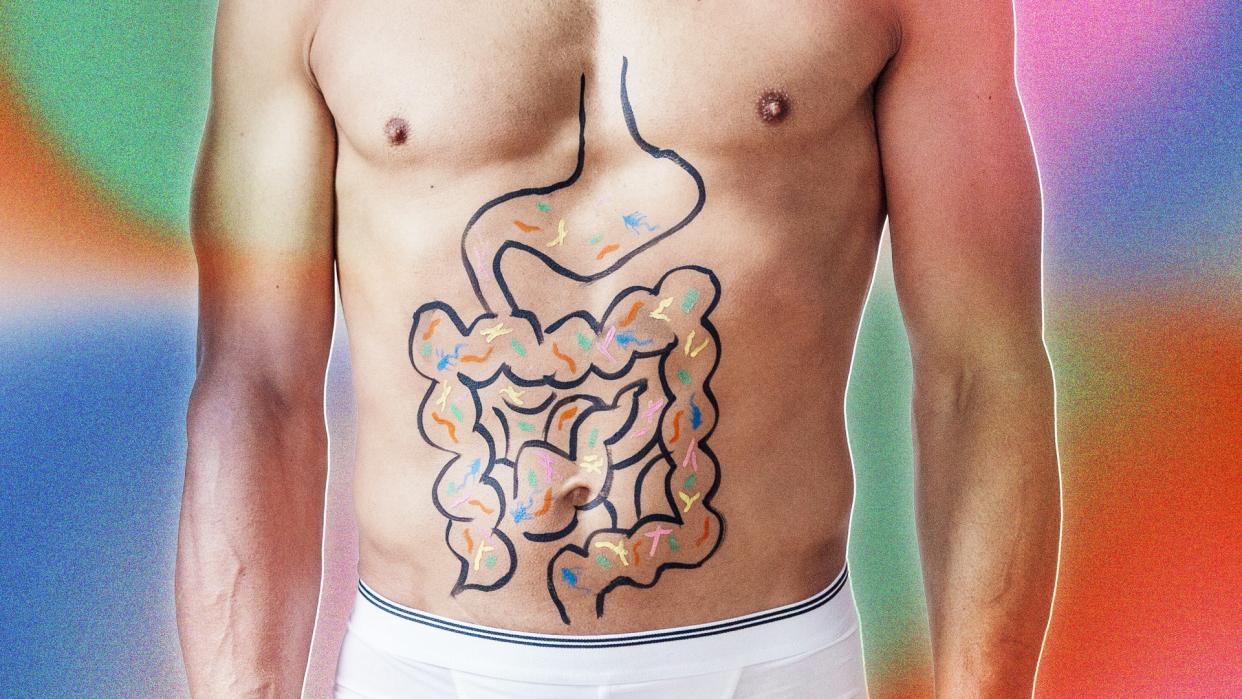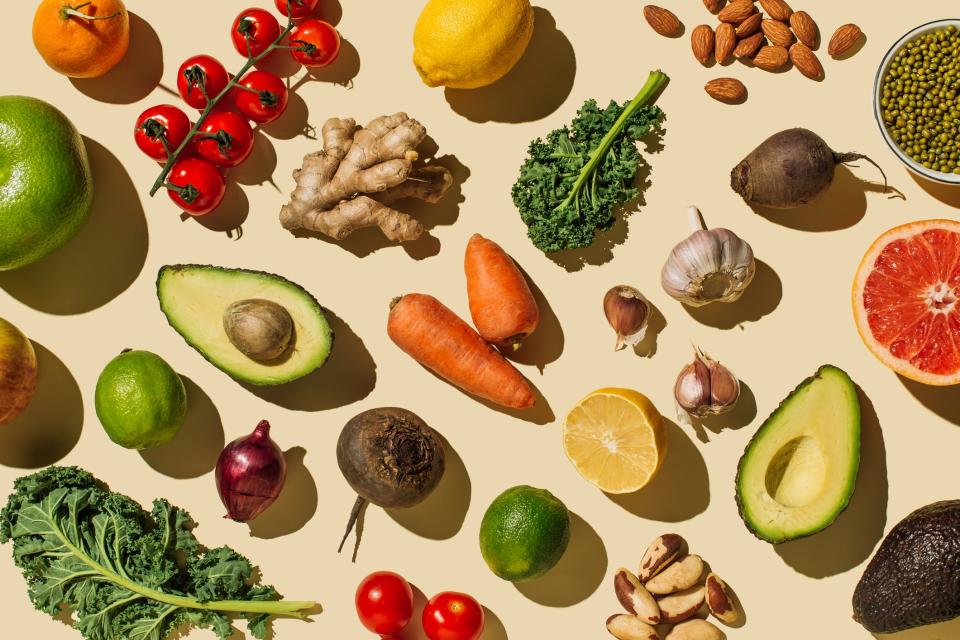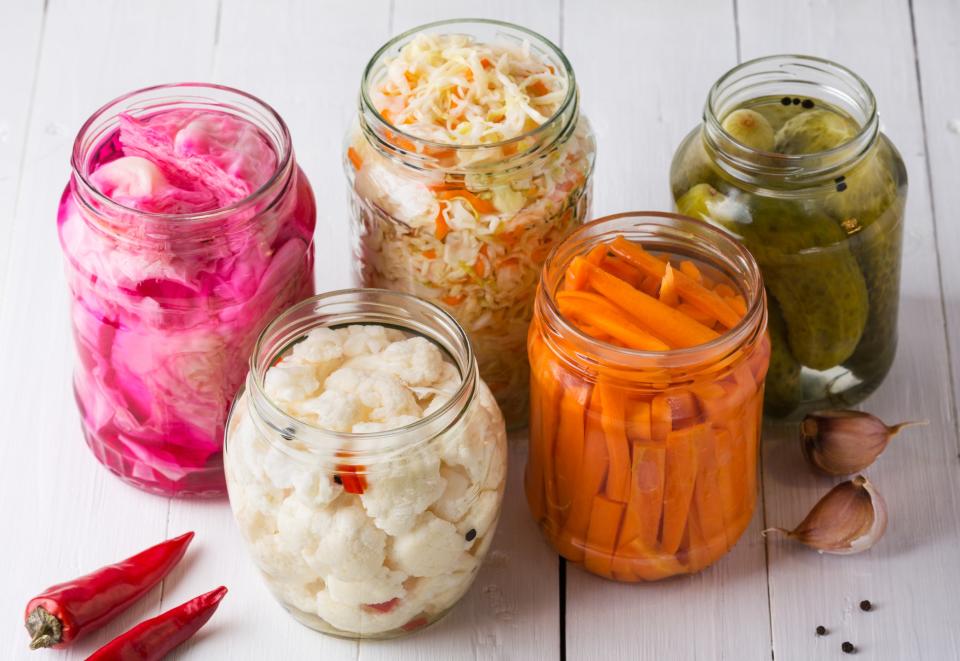How to Optimize Your Gut Health for a Better-Functioning Brain, According to Experts

If you haven't yet clocked that gut health is one of the most important aspects of a healthy life, then sit down and order some sauerkraut because what's going on in there has a monumental effect on who you are, how you feel, and what you look like.
According to a landmark international study, our diet, the microbes in our guts, and our overall health are intricately connected. Incredibly, what's in our guts offers a stronger indication of our risk of diabetes, heart disease, and obesity than even our genetic predispositions. This builds on a 2019 study demonstrating “profound implications” in the link between diet and disease.
There's no wonder that longevity experts focus on gut health, including Dr. Mark Hyman, who recently told GQ, “If you have a million-dollar racehorse, you're going to make sure you know how to train it and feed it and take care of it so it's fully optimized… We don't do that with our bodies. We feed it all kinds of crap. We eat fries and junk and sugar, and we don't think about the consequences of how we feel now or how we're going to feel as we get older.”
If you didn’t get the memo, it’s cool to care about gut health. We aren’t talking about weight loss here, but rather an intricate system that—if kept in balance—drastically impacts your general health, mental well-being, and ability to get fit.

Pattern of variety fresh of organic fruits and vegetables and healthy vegan meal ingredients on beige background. Healthy food, clean eating, diet and detox, eco friendly, no plastic concept . Flat lay, top view
Tanja IvanovaWhat is ‘gut health’ and why should we care?
“‘Gut health’ refers to the overall wellness of our gastrointestinal tract. This encompasses the region between one’s mouth and bottom,” says Gregory Thomas, a consultant colorectal surgeon at The Princess Grace Hospital.
“Gut health has become a hot topic in recent years and for good reason,” adds Sas Parsad, founder of The Gut Co. “Our gut is home to trillions of microbes that are crucial to our overall well-being. Good gut health is about maintaining a diverse and harmonious ecosystem in our gut.
“Our gut is responsible for digestion and influences our immune system, metabolism, brain function, and even our mental well-being. Caring for our gut health is like nurturing a secret powerhouse within us.”
What your gut can do for you
Experts are learning more about the gut every day, and it’s now widely held that the gut is the place where the inside of your body meets the outside world. “A huge amount of our immune system is integrated into our intestines, and there is a large number of bacteria which live in our gut,” says Thomas, who explains that there is thought to be ten times the amount of bacteria in our gut than the number of cells in the entire rest of our bodies. “These bacteria have a role in the absorption of the necessary nutrients from our food, production of vitamins and hormones, and the overall function of our gut.”
“Good gut health can be linked to the health of many other parts of the body because 70% of the body’s immune cells lay along the digestive tract,” adds Dr. Paul Banwell, founder of the supplement brand ARTIS London. “Signs of an unhealthy gut include an upset stomach, feeling tired, trouble sleeping—as most of your body’s serotonin, which helps with sleep, is produced by the gut—food intolerance, food cravings, weight loss or gain, and skin irritation like acne or eczema.”
According to Parsad, upsetting this delicate ecosystem with things like too much alcohol, poor sleep or inactivity can contribute to a wide range of issues, including digestive disorders, autoimmune diseases, obesity, heart disease, inflammation, impaired nutrient absorption, a weakened immune system and even certain types of cancer. “Additionally, recovering from illness and getting fit again can be challenging if our gut health is compromised, as nutrient absorption and energy production may be hindered.”

Mature man preparing healthy meal on kitchen counter
10'000 HoursThe link between the gut and the brain
Interestingly, research has shown a strong connection between the gut and the brain, known as the ‘gut-brain axis.’ This connection works both ways, “allowing the brain to influence intestinal activities, including the activity of functional immune effector cells, and the gut to influence mood, cognition, and mental health.” There's a vast amount of evidence that enteric microbiota (the microorganisms dotted around your intestines) have a significant effect on this gut-brain relationship, with the paper's authors concluding that, unsurprisingly, “diet has also been shown to influence the gut microbiome’s impact on cognitive function."
“The gut microbiota produces neurotransmitters and other substances influencing brain function and mood,” Parsad explains. “An unhealthy gut can contribute to mental health issues and even sleep disorders.” Maintain a happy gut, and your gut will help look after you.
What are prebiotics and probiotics?
Prebiotics are the foods you eat that help fuel the bacteria in your system—think of them like fertilizer for your garden, except your prized rhododendrons are actually a variety of handy gut flora. You can find prebiotic-rich foods easily: the charity Guts UK suggests artichokes, asparagus, bananas, berries, tomatoes, garlic, onions, legumes, green vegetables, and wholegrain cereals to start. Supplements are sometimes used to help redress the delicate balance of your gut microbiome.
Probiotics are a way to bulk up your gut's bacterial prowess. You're probably more aware of the live bacteria and yeast cocktails via adverts for small yogurt-ish-adjacent drinks that people seem to have before starting a busy day of riding a bike or smiling in an office. The theory goes that adding more of the “friendly bacteria” can help replenish your system after illness or promote a healthier gut microbiome in general. There's some evidence for probiotics aiding with the symptoms of conditions like irritable bowel syndrome, but if you're looking for a Danone-fuelled cure-all for other things like skin conditions, the jury is still out.
All guts are different
Just as we’re all unique individuals, our guts each contain their own bacterial menagerie. “The mix of the different types of bacteria is unique to each one of us,” Thomas explains. “This composition is dependent on where we live, what we eat, who we live with, medication use (especially antibiotics), and our age (amongst many other factors)."
There is no one-size-fits-all approach, and, to some degree, many of the factors affecting your gut health (and, hence, your overall well-being) are beyond our direct control. This doesn't mean you can't take some easy steps to improve your chances of a happy gut.

Fermented vegetables. Sauerkraut with carrots and cucumbers.
Yulia NaumenkoBoosting your gut health
At the risk of sounding like a Yakult advert, maintaining good gut health is about protecting the ‘good bacteria’ in our gastrointestinal tract. The thinking goes that fiber provides rich nutrition for these bacteria, helping them to flourish. “Eating food such as yogurt, kefir, sauerkraut, kimchi, and other fermented vegetables is really good for your gut health,” says Banwell. “Try to reduce sugar and alcohol intake as well as coffee and up your intake of colorful fruit and vegetables and water. Eating more whole grains and exercising will also help.”
Thomas agrees that “a diet rich in over-processed food will disrupt the microbiome” and suggests a varied, balanced healthy diet including large amounts of fruit, vegetables, whole grains, legumes (chickpeas, lentils, beans, etc), and nuts, with modest amounts of lean meat and dairy products. If you follow a vegan diet, opt for alternate sources of protein, topping up on vitamin B12, vitamin D, and calcium. And we'll never tire of making this point: Whatever your diet, you should drink plenty of water.
Thomas is keen to stress that tweaking your diet to promote good gut health has nothing to do with weight loss and that the two should not be confused. “Many weight loss programs suggest the avoidance of various food groups,” he says. “This is unlikely to be helpful to gut health. A balanced diet with an appreciation of the calories consumed, taken alongside regular exercise, is all that is required.”
Next time it comes to choosing dinner, opt for a colorful, varied plate instead of loading up on the same old favorites. Not only will your gut thank you, but your whole body will, too.
How to improve your gut health
Up your fruit, vegetables, whole grains, legumes (chickpeas, lentils, beans, etc), and nuts, with modest amounts of lean meat and dairy products.
Eat fermented foods like natural yogurt, kefir, sauerkraut, kimchi, and other fermented vegetables.
Reduce sugar and alcohol intake.
Cut down on over-processed food.
Drink water.
This story originally appeared on British GQ with the title “Why gut health is responsible for your happiness."
Originally Appeared on GQ

